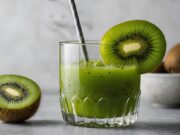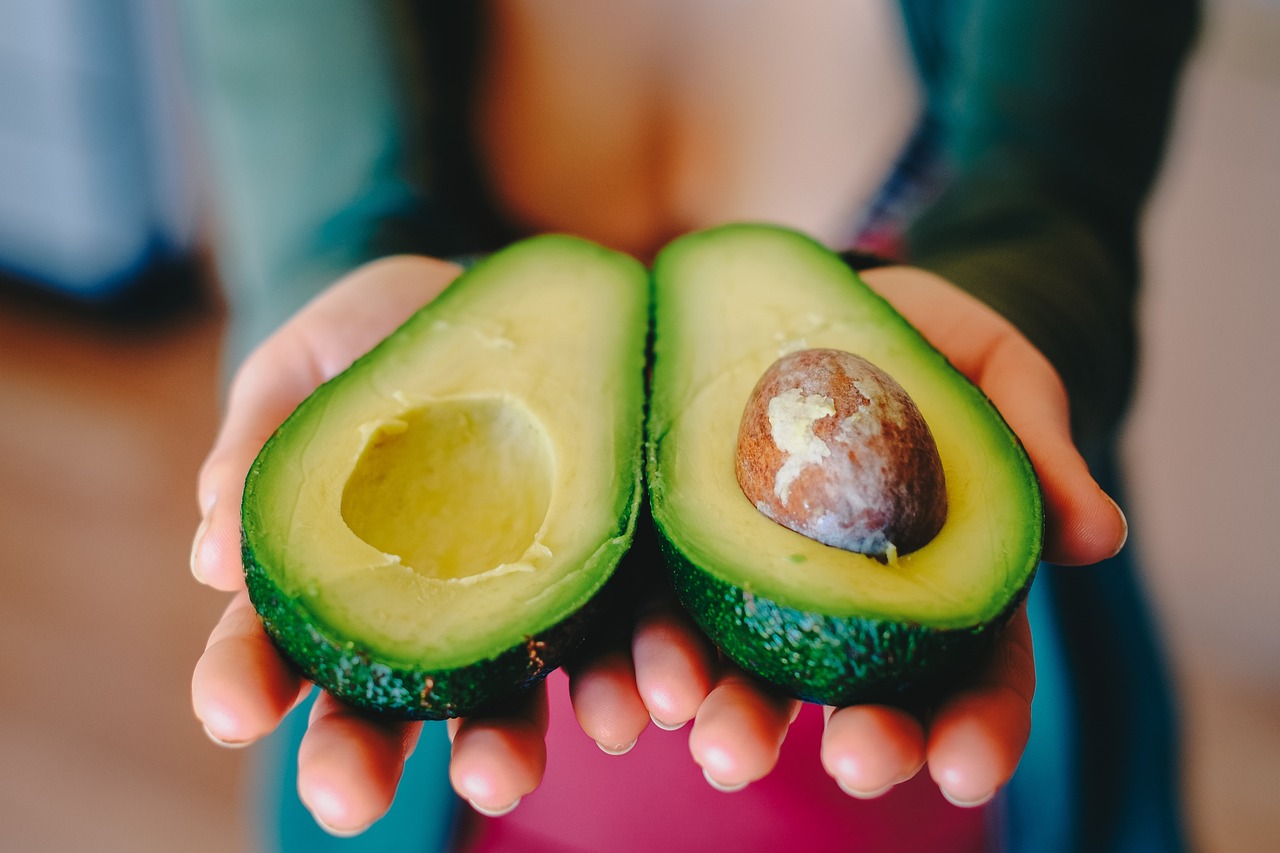- Avocados are fruits, botanically classified as a large berry, and are known for their unique creamy texture.
- They originated in Central and South America, with evidence of avocado consumption dating back thousands of years.
- Avocados are packed with healthy fats, including monounsaturated fats that are beneficial for heart health.
- There are hundreds of different avocado varieties, varying in shape, size, color, and taste.
- The Hass avocado is one of the most popular varieties and is known for its dark green, pebbly skin and creamy flesh.
- Avocados are considered a nutrient-dense food, providing essential vitamins and minerals such as potassium, vitamin K, vitamin E, and vitamin C.
- They are a good source of dietary fiber, which aids in digestion and helps maintain a healthy gut.
- Avocados are unique among fruits because they are low in sugar and high in healthy fats and fiber.
- The green flesh of avocados is rich in antioxidants, which help protect the body against oxidative stress and inflammation.
- Avocados are a versatile fruit and can be enjoyed in various ways, including in salads, spreads, smoothies, and even desserts.
- They can be used as a healthy substitute for butter or oil in baking recipes.
- Avocado oil, extracted from the fruit, is often used in cooking due to its mild flavor and high smoke point.
- Avocado trees can take several years to produce fruit, with some varieties taking up to 10 years to reach maturity.
- They are typically harvested when they reach maturity but are still firm to the touch. They then ripen after harvesting.
- Avocados can be ripened faster by placing them in a paper bag with a banana or apple, which releases ethylene gas that speeds up the process.
- Avocado consumption has increased significantly over the years, with the rise in popularity of dishes like avocado toast and guacamole.
- Avocado trees can grow up to 40-80 feet tall, but they are often pruned to a manageable height for easier harvesting.
- Some avocado varieties have a unique peeling characteristic, where the skin easily peels off when the fruit is ripe.
- Avocados have a high water content, making them a hydrating fruit choice.
- The avocado seed (pit) is often discarded, but some people enjoy growing avocado trees from the seed as a gardening project.
- Avocados are commonly associated with a healthy diet due to their nutrient profile and potential health benefits.
- They are a good source of folate, a B-vitamin that is important for cell function and fetal development during pregnancy.
- Avocados are a natural source of plant sterols, which are compounds that can help lower cholesterol levels.
- The creamy texture of avocados is attributed to their high content of monounsaturated fats.
- Avocados have a low glycemic index, meaning they have a minimal impact on blood sugar levels.
- They are rich in fiber, which can promote feelings of fullness and aid in weight management.
- Avocados are a good source of lutein and zeaxanthin, two antioxidants that are beneficial for eye health.
- The avocado tree is an evergreen tree that can produce fruit year-round, but its peak season varies depending on the region.
- Avocado leaves are sometimes used in traditional herbal medicine for various purposes, including treating skin conditions and soothing inflammation.
- Avocado orchards provide habitat and shelter for various bird species, making them important for biodiversity conservation.
- Avocado oil is often used in skincare products due to its moisturizing and nourishing properties.
- Avocado consumption has been linked to improved nutrient absorption, as certain vitamins and minerals are better absorbed in the presence of healthy fats.
- The word “avocado” is derived from the Nahuatl (Aztec) word “ahuacatl,” which means “testicle” due to the fruit’s shape.
- Avocado trees are typically propagated through grafting rather than growing from seeds to ensure consistency in fruit quality and characteristics.
- Avocado toast became a trendy food item in the early 2010s, gaining popularity for its simplicity and versatility.
- Avocado pits can be used to create natural dyes for fabrics and fibers, producing shades of pink and red.
- Some people may be allergic to avocados, experiencing symptoms such as itching, swelling, or hives after consumption.
- Avocado trees require well-draining soil and are sensitive to frost and excessive moisture.
- Avocado trees can self-pollinate, but they generally have better fruit set when cross-pollination occurs.
- Avocados are sometimes referred to as “alligator pears” due to their textured skin and pear-like shape.
- Avocado trees have a symbiotic relationship with bees, relying on them for pollination and subsequent fruit production.
- The color and texture of avocados change as they ripen, going from a firm green to a softer, darker green or black.
- The United States is one of the largest consumers of avocados, with Mexico being the largest producer and exporter.
- Avocado pits were used traditionally to make ink for writing and drawing.
- Avocado seeds are edible but are often discarded due to their tough and bitter taste.
- Avocado consumption is believed to have health benefits for the cardiovascular system due to their high content of heart-healthy fats.
- The high-fat content of avocados helps enhance the absorption of fat-soluble vitamins like vitamin A, D, E, and K.
- In some cultures, avocados are used in sweet dishes, such as milkshakes or desserts, as well as savory dishes.
- Avocado trees are vulnerable to certain pests and diseases, requiring proper care and management to ensure healthy growth and fruit production.
- The demand for avocados has led to concerns about deforestation and environmental impact in regions where they are extensively cultivated.
Facebook Comments

































